Our work
EDRi is the biggest European network defending rights and freedoms online. We work to to challenge private and state actors who abuse their power to control or manipulate the public. We do so by advocating for robust and enforced laws, informing and mobilising people, promoting a healthy and accountable technology market, and building a movement of organisations and individuals committed to digital rights and freedoms in a connected world.
Filter resources
-
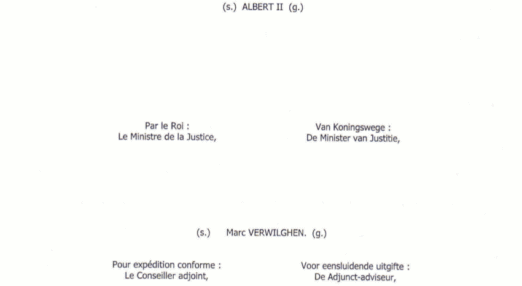
Press release: EDRi celebrates 15th anniversary
Today, EDRi turns 15! We are proud to announce the anniversary of our formal registration as an NGO – an occasion for us to reflect on the achievements of the European digital rights movement, and imagine what the next 15 years might look like.
Read more
-
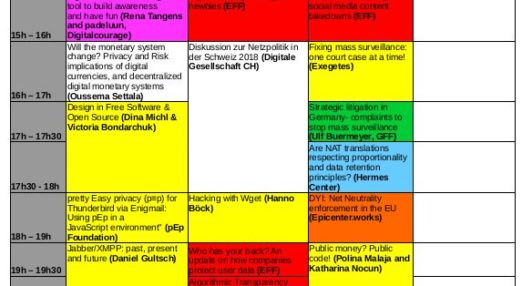
Chaos Communication Congress 2017
The 34th annual four-day hacker conference Chaos Communication Congress (34c3), organised by EDRi member Chaos Computer Club, took place in Leipzig, Germany on 27-30 December 2017. The congress offered lectures, workshops and other events on various topics related to information technology and its effects on the society. For the first time, we also organised an […]
Read more
-
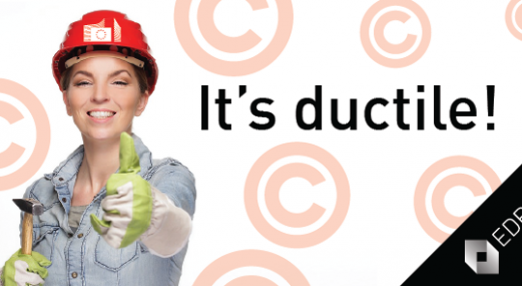
Smashing the law without breaking it: A Commission guide
How to create a general monitoring obligation without creating a general monitoring obligation? That is the question that the Commission has been trying to answer with the Article 13 of its “Proposal for a Directive on Copyright in the Digital Single Market”. It aims at solving the issue of a so-called “value gap”, that is […]
Read more
-
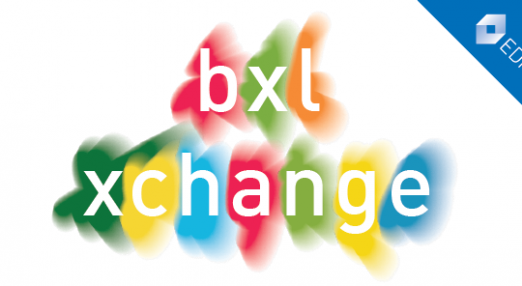
EDRi’s “Brussels Exchange Programme” – turning theory into practice
As a European network of 35 digital civil rights NGOs, EDRi is encouraging its member organisations to get to know each other, and to coordinate their national level advocacy work and campaigning on digital rights. Another important aspect of EDRi’s work is reinforcing the members’ understanding of the European level decision-making, and facilitating the cooperation […]
Read more
-
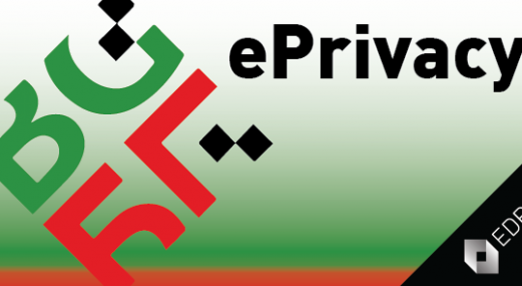
The Bulgarian EU Council presidency & the latest assault on ePrivacy
In January 2018, the Bulgarian Presidency of the Council of the European Union (EU) picked up where the Estonian Presidency left off on the ePrivacy Regulation. It issued two examinations of the last Estonian “compromise” proposal and asked national delegations for guidance on some issues. Together, the documents cover most of the key points of […]
Read more
-

Germany: Constitutional complaint against intelligence agency BND
EDRi observer Gesellschaft für Freiheitsrechte (GFF) has filed a constitutional complaint against surveillance by Germany’s foreign intelligence agency, the Bundesnachrichtendienst (BND). A new law that the German Parliament passed in October 2016 allows the BND to spy on foreign journalists. This destroys trust between journalists and their sources precisely in places where investigative journalism is […]
Read more
-
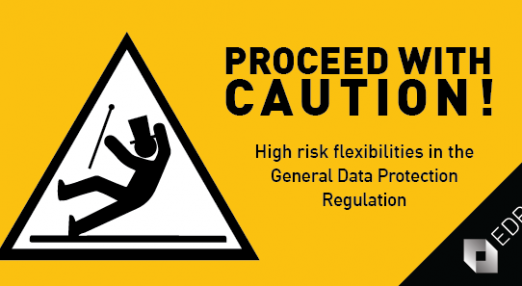
Data protection – time for action
On 24 January 2018, the European Commission (EC) published a Communication on the implementation of the General Data Protection Regulation (GDPR), entering into force on 25 May 2018: “Stronger protection, new opportunities”.
Read more
-
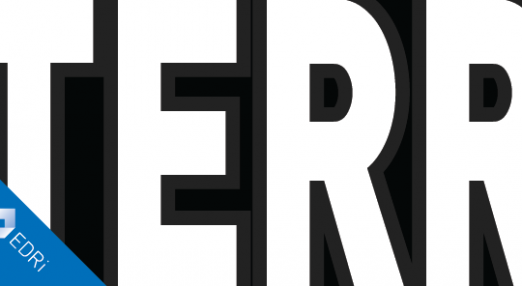
European Parliament – fighting terrorism with closed-door secrecy
The European Parliament’s Special Committee on Terrorism (TERR) was established on 6 July 2017, for a renewable twelve-month mandate. The Committee was created with the ambitious aim of addressing ostensible practical and legislative deficiencies in the fight against terrorism across the European Union (EU) and with international actors.
Read more
-
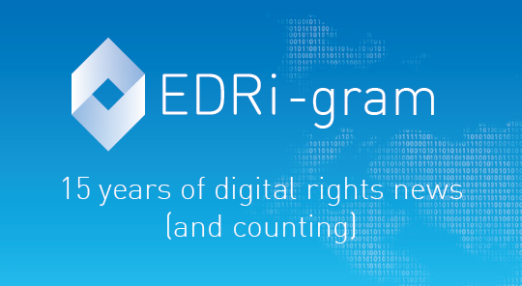
EDRi-gram – 15 years of digital rights news (and counting)
15 years ago this day, on 29 January 2003, we published our very first EDRi-gram. To celebrate this occasion, we are looking back at the articles in this first newsletter.
Read more
-

CJEU hate speech case: Should Facebook process more personal data?
Austria’s Supreme Court of Justice has referred a case to the Court of Justice of the European Union (CJEU) regarding hate speech on social media platforms. The referral could have a global impact on Facebook – and ultimately on our privacy and freedom of speech.
Read more
-
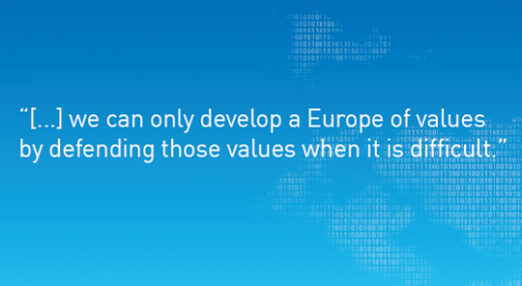
You can’t uphold the law by breaking the law
The Alliance of Liberals and Democrats for Europe (ALDE) invited EDRi member Bits of Freedom to speak at their annual New Year’s Seminar. Hans De Zwart, Director of Bits of Freedom, talked about how the rule of law can only be defended by the European Union taking an exemplary role including by strictly adhering to […]
Read more
-

UN Security Council mandates worldwide air traveller profiling
In the name of “preventing, detecting and investigating terrorist offenses and related travel”, all United Nations (UN) Member States should develop systems for processing and analysing Passenger Name Record (PNR), Advance Passenger Information (API) and “fingerprints, photographs, facial recognition, and other relevant identifying biometric data”, according to a UN Security Council resolution (no. 2396) on […]
Read more
